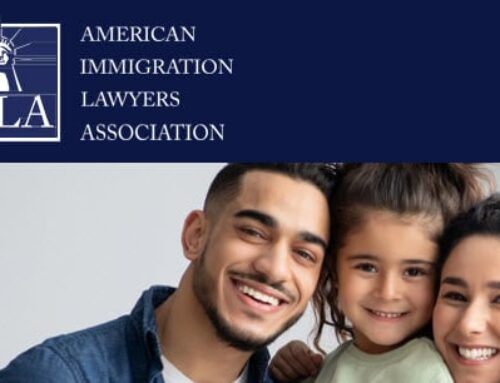Public Charge Rule
On December 23, 2022, the revised Public Charge Rule went into effect. This means all adjustment of status postmarked (or submitted electronically, if applicable) on or after that date, will be subject to the “new” public charge ground of inadmissibility under section 212(a)(4) of the Immigration and Nationality Act (INA).
Background
Under INA 212(a)(4), an applicant for a visa, admission, or adjustment of status who is likely at any time to become a public charge, is inadmissible. Although the INA does not define public charge, it does list a set of factors that must be considered when determining whether a noncitizen is likely at any time to become a public charge.
Defining “Likely to Become a Public Charge”
The regulations at 8 CFR 212.21(a) define “likely at any time to become a public charge” to mean “likely at any time to become primarily dependent on the government for subsistence, as demonstrated by either the receipt of public cash assistance for income maintenance or long-term institutionalization at government expense.” The applicant must be the beneficiary of the benefits, therefore, aid to their relatives is not included.
What is Public Cash Assistance?
- Supplemental Security Income (SSI);
- Cash assistance for income maintenance under the Temporary Assistance for Needy Families (TANF) program; or
- State, tribal, territorial, or local cash benefit programs for income maintenance, commonly called “General Assistance”
What is Long Term Institutionalism?
Government assistance for long-term institutionalization is limited to institutional services under section 1905(a) of the Social Security Act) received by a beneficiary, including in a nursing facility or mental health institution. In its analysis, USCIS considers both permanent institutionalization as well as institutionalization for a long period of time short of indefinite duration (not sporadic), in the totality of the circumstances.
Who Does the Rule Apply To?
The public charge rule applies to all applicants for adjustment of status, including, but not limited to:
- Family-based applicants;
- Employment-based applicants; and
- Diversity visa applicants
Who is Exempted?
- Asylees and refugees;
- Amerasian immigrants at admission;
- Afghan and Iraqi interpreters or Afghan and Iraqi nationals employed by or on behalf of the U.S. government;
- Cuban and Haitian entrants at adjustment of status;
- Applicants seeking adjustment under the Cuban Adjustment Act;
- Nicaraguans and other Central Americans who are adjusting status to LPR;
- Haitians who are adjusting status to LPR;
- Lautenberg parolees;
- Special immigrant juveniles;
- Applicants for registry;
- Applicants seeking temporary protected status (TPS);
- Certain nonimmigrant ambassadors, ministers, diplomats, and other foreign government officials, and their families;
- Victims of human trafficking (T nonimmigrants);
- Victims of qualifying criminal activity (U nonimmigrants);
- Self-petitioners under the Violence against Women Act (VAWA);
- Certain battered noncitizens who are “qualified aliens” under PRWORA;
- Applicants adjusting status who qualify for a benefit as surviving spouses, children, or parents of military members;
- Noncitizen American Indians born in Canada;
- Noncitizen members of the Texas Band of Kickapoo Indians of the Kickapoo Tribe of Oklahoma;
- Nationals of Vietnam, Cambodia, and Laos applying under the Foreign Operations, Export Financing, and Related Programs Appropriations Act of 2001;
- Polish and Hungarian Parolees;
- Certain Syrian nationals;
- Applicants adjusting under the Liberian Refugee Immigration Fairness (LRIF) law;
- Any other categories of noncitizens exempt from the public charge ground of inadmissibility under any other law
We encourage you to review the attached Summary Sheet for further guidance.




